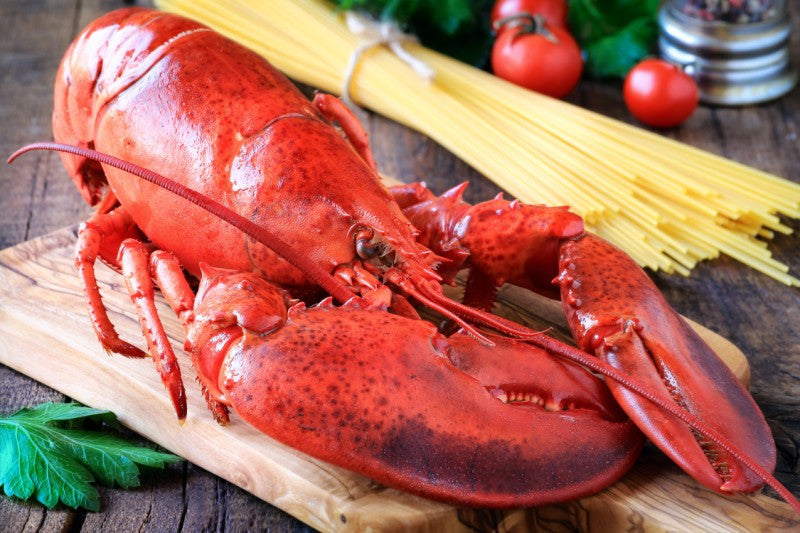
Lobster - Can You afford Not To?
Share
Fancy some lobster? Considered as luxury food, this seafood is something you may have every now and then; it is definitely not an everyday food, unless of course you have the means to make it so. But, do you know that its reputation has not always been this way? In the 17th century, having lobster shells in a home was a sign of poverty; that was what colonists in Massachusetts thought at least. It was also served to servants. And, for you to have an idea how cheap it was, then think of this: in the 1940s, you could purchase a can of baked beans for 53 cents per pound. Canned lobsters? Well, 11 cents per pound.
But, obviously, its reputation has gone a long way, so you may want to know some interesting facts about this pricey indulgence and some of its health benefits too.
As with any arthropod, its body is protected by an outer skeleton or exoskeleton. Well, you can also call it its shell. However, this shell is not able to expand in size as a lobster grows, and it sheds periodically. Without its shell, it is very vulnerable, so it hides until a new shell is formed.
Lobsters are excellent at smelling and touching, which they use to detect prey. They generally feed on meat, such as fish, molluscs, and worms, although they also eat algae and other type of sea vegetation. While they can survive up to 100 years in the wild, a huge percent of lobsters live much shorter because, well, you guessed it, they end up in the fishing nets much earlier.
You may think that live lobsters are red in colour, but that is only after they have been cooked. And, that is because heat destroys all pigments except red. In fact, they are olive green or brown, with reddish shades.
So what nutritional value does lobster have?
First, it has high protein content. One of the things that protein does is give us an energy boost. The body also needs it to repair and rebuild tissues. Lobster is also an excellent source of vitamin B12, which is essential to keep your nervous system working properly. It is also high in choline, which is a water-soluble nutrient that promotes production of neurotransmitters. This means that eating lobster can help improve your cognition.
Eating lobster can also help keep your bones strong. And, that is is mainly because it contains high amounts of calcium and phosphorous, which are minerals your body needs to increase bone mineral density, helping reduce your risk of developing osteoporosis and other health issues associated with weak or frail bones. Furthermore, lobster contains good amounts of omega-3 fatty acids, which have been found to have various health benefits. These include boosting your immune system and keeping your heart healthy.
To sum up, lobster is not just all about their reputation. It is delicious and healthy, too. It contains various nutrients that your body needs to stay healthy. And, its interesting history and facts are something you can share with your friends over dinner.
